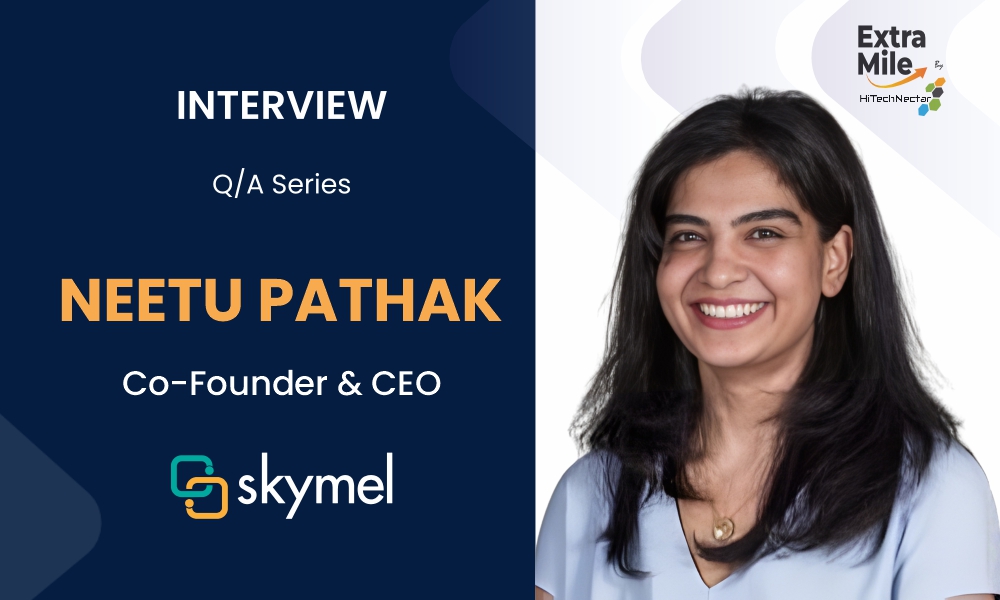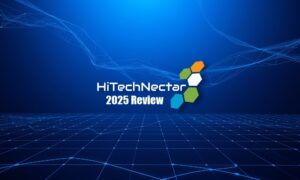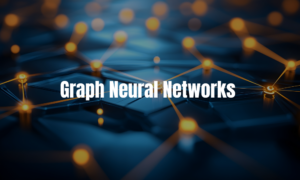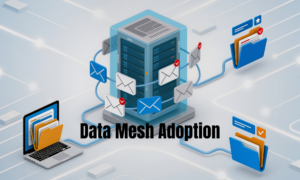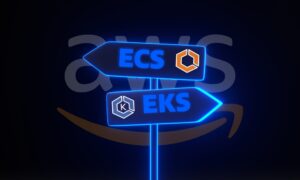ExtraMile by HiTechNectar is an exclusive interview series that combines the latest technologies and expert insights so that you can make better decisions. In each session, we feature top voices from diverse industries to simplify complex tech advancements.
In this session, we are accompanied by Neetu Pathak, the Co-Founder and CEO of Skymel, a leader in AI infrastructure technologies. The firm focuses on self-learning AI agents, helping organizations improve their AI projects. Neetu, while co-founding the firm, intended to fill the gap between enterprises and their failure to implement AI successfully.
Our Guest is a veteran with over a decade of experience in AI and ML projects. In the discussions, we’ll dive into Neetu’s professional journey, Skymel’s approach to build infrastructure layer for self-learning AI agents, key challenges of AI implementation, her mantra for resilient leadership, and more.
Hello, Neetu; It’s great to have you with us today!
Q1. Throughout your professional journey, you have been associated with product engineering and management. What are the key lessons you have learned so far, and how have you implemented them in your entrepreneurial journey?
Neetu. The biggest thing is just talking to users constantly. Early in my career, I’d build features I thought were clever, and then nobody would use them. Now with Skymel, we’re having conversations with developers every single week. They tell us what’s breaking, what’s annoying, what they wish existed. That feedback is gold.
I also learned the hard way that perfection is the enemy of shipping. There’s always going to be one more feature you want to add. But if you wait until it’s perfect, someone else will ship first. We’re focused on getting the ADK into developers’ hands fast and iterating based on what they actually do with it.
And timing matters more than people think. You can have great tech, but if the market isn’t feeling the pain yet, you’re just too early. Right now, companies are desperate for agents that actually work in production. That’s why we’re building now.
Q2. The commercial sector is nothing like how we knew it a couple of decades back, and technological advancements have been the major reason for such a transformation. Which innovations do you think have been the most impactful in this regard?
Neetu. Cloud changed everything. Before that, you needed huge upfront capital just to test an idea. Now you can try things for basically nothing and scale when they work.
But I think APIs and developer platforms were just as big. Look at Stripe, Twilio, AWS. They made it possible for small teams to build things that used to require massive engineering organizations. That’s what we’re trying to do with agents.
And open source. The fact that we can build on existing ML frameworks and models instead of starting from scratch? That’s huge. We’re standing on the shoulders of a lot of good work.
Q3. Skymel’s Agent Development Kit has been a revolutionizing technology for building AI agents. What benefits does it offer to software developers?
Neetu. The main benefit is you stop spending 80% of your time babysitting your agents. Right now, developers are writing tons of orchestration code, complex prompt chains, hard-coded guardrails. Basically building scaffolding around the LLM to keep it from going off the rails. And it still breaks constantly.
With the ADK, you just describe what you want the agent to do in plain English. Our engine handles the planning, the execution, the self-correction. So instead of debugging why your agent hallucinated a tool that doesn’t exist, you’re actually building features.
Plus, the agents learn. Every time they run, they get better. That’s something you literally cannot do with a pure LLM approach. Your agent becomes an asset that appreciates over time instead of technical debt.
Q4. What is the multi-component engine and how does it assist in reliable AI agent deployment?
Neetu. So the problem is everyone’s been trying to make LLMs do everything. Natural language, reasoning, planning, memory, all of it. But LLMs are really good at one thing: understanding and generating text. They’re not good at cause-and-effect reasoning or learning from mistakes.
Our engine splits those responsibilities. LLMs handle the language understanding part. What is the user asking for? Causal models do the logical reasoning. If I do A, then B will happen. Traditional ML models learn from execution. This approach worked last time, let’s try it again.
Think of it like your brain. You don’t use the same neurons for understanding speech and planning your route home. Different systems, different jobs. That’s what makes it reliable. Each component is doing what it’s actually designed to do.
Q5. AI agent implementation has become a common practice across industries. What challenges are generally associated with AI agent integration, and how do companies overcome them?
Neetu. The biggest challenge is reliability. Agents drift from their goals, they hallucinate tools or data that don’t exist, they get stuck in loops burning through API credits. Companies are throwing engineers at this problem. Writing more guardrails, longer prompts, more complex orchestration. But that doesn’t fix the root issue.
Then there’s the learning gap. These agents don’t remember anything. You deploy them, they make mistakes, you fix the code, you redeploy. It’s this constant manual cycle. At scale, that’s unsustainable.
Most companies are “overcoming” this by just accepting high failure rates. Or having humans in the loop for everything. That’s not really overcoming it, that’s just working around it. We think the solution is architectural. You need a different foundation, not more duct tape.
Q6. With advanced reasoning and multimodal abilities, generative AI is progressing very swiftly. How do you think these abilities assist businesses operating in diverse industries?
Neetu. The multimodal stuff is exciting because suddenly agents can work with the way information actually exists. Documents with images, videos, screenshots. That opens up a ton of use cases.
But better reasoning in LLMs is great, it doesn’t solve the fundamental problem. These models still can’t learn from experience or understand causality. They’re getting better at appearing to reason, but they’re still pattern matching on a massive scale.
For businesses, the real value comes when you can deploy an agent that actually improves over time. A customer support agent that learns your product, your customers, your edge cases. A compliance agent that gets better at flagging issues the more reports it processes. That’s what changes the economics. Suddenly you’re not paying engineers to maintain it forever.
Q7. Beyond the ADK for developers, you also have Personal Agents for everyday users. Can you tell us about that and who it’s designed for?
Neetu. Yeah, this is something I’m really excited about. Not everyone is a developer, right? But everyone could benefit from having their own AI agents.
With Personal Agents, you just describe what you need in plain English. No coding, no API keys to manage, no drag-and-drop builders. Just tell it what you want. “I need an agent that summarizes my research papers” or “I need someone to help me draft emails in my writing style.” And it’s done. Save it, use it whenever you need it.
We’re targeting business users who have repetitive tasks, researchers, content creators, really anyone who thinks “I wish I had an assistant for this specific thing.” You don’t need to know anything about AI or development. You just need to know what problem you’re trying to solve.
We’re offering a 7-day trial for people who want to try it out and support what we’re building. And we’re constantly adding new tools and features to make these agents more powerful. The goal is to make AI agents accessible to everyone, not just technical teams.
Q8. Successful startups are established with determination and strong leadership. How do you manage and keep your team motivated to sustain growth at Skymel?
Neetu. I try to keep things really transparent. Everyone knows what we’re trying to do, what’s working, what’s not. No surprises. When we have a tough week, we talk about it. When something breaks, we figure it out together.
And I think giving people ownership matters. Sushant owns the technical architecture. I’m not going to micromanage how he builds the engine. He’s way better at that than me. When people feel like it’s actually theirs, they care more.
Also, we celebrate the small wins. Got a developer to actually try the ADK? That’s huge. Fixed a bug that was bothering someone? Let’s acknowledge that. You can’t just focus on the big milestones. You’ll burn out waiting for them.
Q9. What is your long-term vision for Skymel? How do you plan to progress in the competitive industry and which areas do you want to focus on in the upcoming years?
Neetu. We want to be the platform that every developer reaches for when they need to build an agent. Like, you don’t even think about it, you just use Skymel. But also the platform that everyday people use when they need a personal assistant for specific tasks.
Short term, we’re focused on developers and startups who are feeling the pain right now. Get them successful, get them building things they couldn’t build before. Then those developers move to bigger companies, or their startups grow, and we grow with them.
Long term, we think this becomes enterprise infrastructure. Every company will have dozens or hundreds of agents running. They’ll need a platform that makes those agents reliable, auditable, and continuously improving. That’s us.
The competitive part is interesting because most of the “competition” is still trying to put more guardrails around LLMs. We’re solving a different problem at a different layer. So it’s less about beating them and more about proving that our approach works. Once enterprises see agents that actually deliver ROI instead of endless maintenance costs, the decision becomes pretty clear.
Explore Our Other Insightful Interviews:


